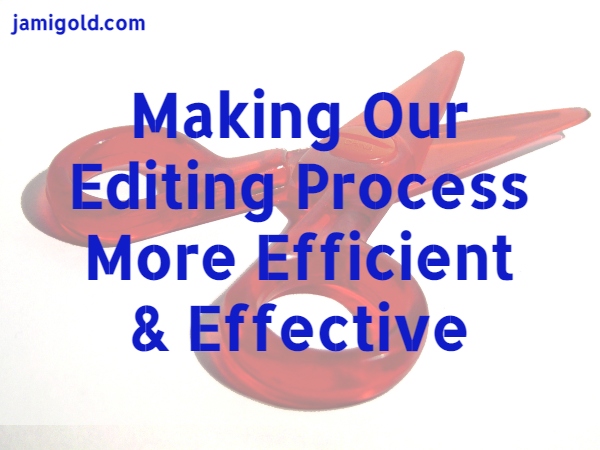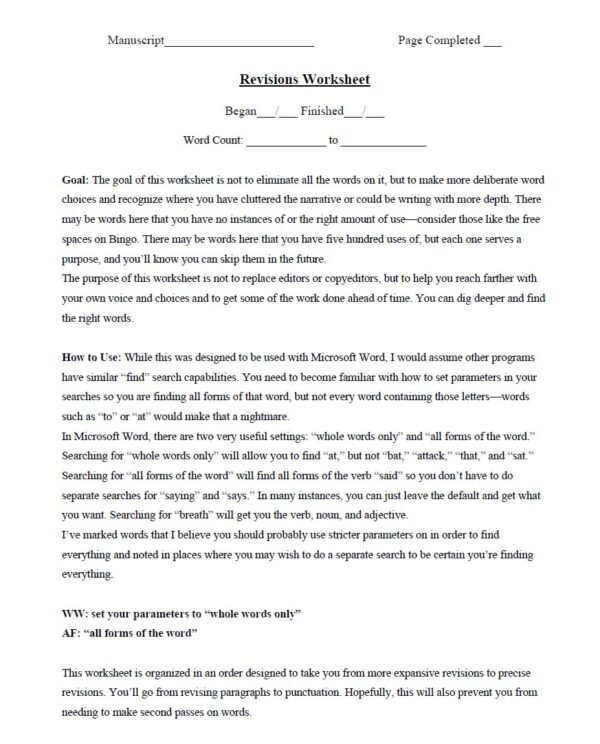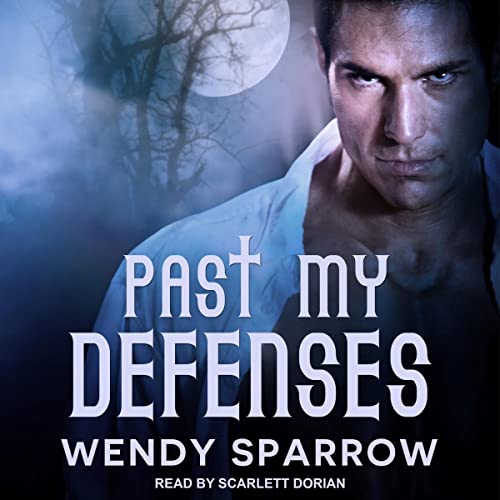How Can We Improve Our Writing? — Guest: Wendy Sparrow

Once our story’s flow is in good shape, we might struggle with knowing how to tackle the next step of editing. If we just do another “editing pass” without having specific thoughts of how to improve our writing, our results are likely to be lackluster. After not having much luck with that approach, writers tend to jump to the copy editing stage and start looking for typos or missing commas, but there’s another step between “develop the big picture” and “grammar nitpickiness.”
That stage is called line editing, and as I’ve talked about before, it’s a tricky editing step to nail down. Many of those who call themselves line editors are really closer to copy editors, so even multi-published authors often haven’t gone through a really good line edit.
Line editing is all about making the words on the page—how we word our ideas in sentences and paragraphs—stronger, with better flow, clarity, tightening, showing, word choice, voice, etc. A good line edit can make our writing sing.
However, between the fact that it’s hard to find a good line editor (one that actually line edits rather than copy edits), and that the right line editor for us needs to be deeply in tune with our voice, it can feel impossible to put our story through that editing stage. That prompts the question: Can we self-line-edit?
To some extent, yes, we can. But it’s a lot of work, and back to my point in the first paragraph, we likely don’t know how to start.
In many cases (depending on how our brain works), the easiest—or at least the most straightforward—self-editing approach is to focus on “trouble words” and fix those sentences. Trouble words often indicate weak writing, wordiness, unclear sections, telling rather than showing, etc. Fixing them usually takes more than just a simple word choice swap and instead requires a sentence (or even paragraph) rewrite, but at least having them “flagged” helps us know where to start.
What are these “trouble words”? And how can we tackle finding them?
Years ago, I shared a technique for using MS Word’s macro ability to power through searches, but macros are intimidating for many (even me, and I’ve used them). That’s why I’m thrilled to welcome one of my favorite authors (she’s one of my auto-buy authors!) here today.
Several weeks ago, Wendy Sparrow started a live-tweet thread of her attempting a massive edit based on a list of trouble words she’d accumulated over the years. Not only was her attempt successful in addressing many of those line-edit issues, but her 15-page worksheet with her list of words (along with explanations and instructions) is much easier to use than learning macros. (You know I love worksheets! *grin*)
Please welcome Wendy Sparrow!
(P.S. Stick around to the end for the winners from my 12th Annual Blogiversary Contest too.)
*****
Searching for a Better Editing Process
By Wendy Sparrow
We all have things getting us through the pandemic and, in November 2020, mine turned out to be sci-fi romances. I had been binge-reading sci-fi romances for a while, but NaNoWriMo rolled around, and I had an idea for a short story stuck in my head. I was also working on the final book in an urban fantasy series. I figured I would just write that short story right out of my head and move on.
The sci-fi romance turned into a novella…which shifted to a novel. That novel became a series of books. That series lengthened out.
Can we self-line-edit? And if so, how? @WendySparrow shares her process (and worksheet!) Click To TweetI’m a pantser who doesn’t know the end from the beginning. Eventually, as the series became “another book” and “another book,” I realized that I would need to finish the series before I returned to the first book to revise it. The plot arcs throughout the series wouldn’t match if I didn’t.
Adjacent to this ever-growing series, I had an increasing worry that this was not the sort of thing that could be traditionally published, which is how I have always operated. It made me want to do a more in-depth revision on the series to ensure it matched the quality of previously published books. At the same time, there were aspects to the series that I loved, and I didn’t want to have a well-meaning editor suggest changes that might dilute them.
These were things that were constantly on my mind as I drafted book after book after book.
Using OCD to Help with My Editing
In May of this year, I finally finished the entire series, just in time for my doctor to make medication changes. (I’m disabled and have lousy health.) The change in medication inadvertently caused my OCD to surge. I decided that having my obsessive nature help with a revision wouldn’t be the worst thing.
I already kept a list of a dozen words to search for before passing a manuscript on to an editor or my agent, but I decided to add to that list as I did a revision. The list grew. It filled in as I researched what other authors were doing. Having worked with a lot of different editors in the past thirteen years meant that I could fix the mistakes I was finding as I came across them, and that was nice.
Looking for Trouble Words
Early on, I saw several websites recommend swapping out the word “it” with the actual object of reference or more descriptive words whenever possible. That was a game-changer and also horrible.
Need a list of words to watch out for while editing? @WendySparrow has the perfect worksheet to help! Click To TweetI got on Twitter to complain about my lack of cherishing support from my daughter. I had realized that my 96K manuscript had over 1800 “it” instances in it. My daughter, 21, responded, “So, your book is 2% the word ‘it’?” Yes, she has been disowned, but, also, I began to have a morbid fascination with percentages.
As I took down my “it” count—something I documented on Twitter, I started to see vast improvements. I was getting my manuscript closer to where it was after a second pass with editors, and I was keeping more control over the choices. (It should be noted that I had already received feedback on this first book that had resulted in significant revision. I had added an entire scene and cut 7K from the beginning of the book.)
I began looking at other things like prepositional phrases. I’ve noticed I overuse prepositional phrases, but I had no idea how much. Some prepositions took multiple days to get through. I would search for “to” and find entire paragraphs that were almost entirely the word “to.” (Only a slight exaggeration.) The horror I felt at coming across sentences with three or even four instances of “to” left me gaping at my laptop.
After I finished hunting for prepositions, there were also adverbs, overused adjectives, and actions I used every other page. (Nodding. My characters nod like bobbleheads.) I added more words to the list.
Editing: Hard But Worth It
It took an entire month to get through the ever-expanding list. I think I could have cut it down to two weeks if I had dedicated more of my day to it. Two to three weeks would have been comparable to some of the passes I’ve done with editors. By the time I finished, the list was seven pages long. I felt triumphant, though.
Yes, it had been difficult and miserable, but I could already tell it was so much better. Also, it was the first time I had made it through heavy revision without hating my book by the end of it. I didn’t resent having to change things because I was the one calling the shots. I literally had no one to blame but myself.
It was hard, and I hated it.
It was glorious, and I loved it.
Clean Up After the Editing Changes
I read it through on my Kindle afterward and discovered that this piece-by-piece revision had created paragraphs that needed segues between them at times. I also discovered many different plot holes that I hadn’t seen when the narrative was more cluttered. Characters were more vibrant and their conflicts and passions were more clear. I’d taken a manuscript from a faded impressionist painting to HD color.
It took another two weeks to correct all the little problems I noted, as well as to get rid of typos. Once again, this might have gone faster, but I’d made medication changes again.
Sharing My Process with You
Several people who’d been following my progress on Twitter requested copies of “the list,” and I realized that it wouldn’t stand on its own without explanation. You couldn’t simply cut out every use of the word “it” from a manuscript. I converted it to a worksheet with examples on how to fix problems, so that other writers could feel more confident that they’d taken their manuscript as far as they could on their own.
Your mileage may vary with this list. Your manuscript may not begin being 2% “it.” You may be able to skip entire sections, or you could take a few words from this and call it good. This was not meant to exclude beta readers or editors from your process. After you’ve got your big fixes done, you can tackle this worksheet, and then run it by an editor or submit it.
Good luck with your writing and have fun.
*****
(Newsletter readers: Click through to the post to see an image of the worksheet and download a copy.)
- Click to Download Wendy Sparrow’s Revision Worksheet — PDF version
- Click to Download Wendy Sparrow’s Revision Worksheet — MS Word ’07/10 version (.docx)
- Click to Download Wendy Sparrow’s Revision Worksheet — MS Word earlier version (.doc)
Note: All versions include a few blank lines to add your own “trouble words” to the list, but if you want to add more than a few words that are specific to your writing quirks, use one of the MS Word versions to edit to your needs.
*****

Wendy Sparrow was scolded as a child so frequently to stop making up stories that she may have become an author out of stubborn contrariness. She lives near the Puget Sound and enjoys hanging out with her family and dogs. In fact, she is one of her dogs’ favorite people, and they have excellent taste in such things and cannot be easily bribed with treats. (She still might make up stories to keep her skills sharp.)
Wendy has worked to promote awareness of several physical and mental health conditions such as OCD and agoraphobia, which earned her an IMDb listing. She writes for adult and young adult audiences and, currently, she is working on a sci-fi romance series set on the other “side” of the universe.
Website | Twitter | Facebook | Amazon | Barnes & Noble
*****
Past My Defenses: Taming the Pack, Book 1
Now Also Available in Audio!
Vanessa is the fastest Lycan around. In wolf form, the only threat she can’t outrun is her allergies. After a feline dander-bomb takes her down, she wakes up naked in a cage staring at a hot park ranger who had no idea what he’d trapped. But ooooh, he smells so good. Mine.
Dane hoped to tame the silver wolf in his kennel, but all bets are off with the deliciously sweet Vanessa on two legs. Her temper makes his pulse race, and he can’t escape the feeling they belong together.
They’re hot as a forest fire even before they scent-match, but Glacier Peak’s Alpha considers Dane a danger to the pack. Meanwhile, Lycans are being poached, and Vanessa has been targeted. Dane will have to keep her close to protect her, but with Vanessa in heat and mad to mate, who will protect him?
Amazon | Barnes & Noble | iBook | Google | Kobo | More Info
*****
Thank you so much, Wendy! I appreciate how you turned your struggles into something that will be able to help us all. *hugs*
More than just a “list of words,” Wendy’s worksheet includes instructions to let us know why those words can indicate problems and what to look for when searching for those words. As she mentioned, the goal is not to get rid of every word (that would be impossible!) but to use our searches of trouble words to see if there’s a better way to word our thoughts, one that includes more showing, voice, etc.
I’ve used a similar process (with those before-mentioned macros) on my stories, and like Wendy experienced, this nitpicky step can lead to huge improvements in our writing. Weak or weasel words, wordiness, telling rather than showing, and so on don’t just weaken our writing, they can weaken our characters.
Be warned, however, that this process of searching for trouble words and analyzing each one is difficult, and depending on our brain works, the experience can be maddening and soul-crushing. Just know that you’re not alone (here are Wendy’s live-tweet threads about her process: editing thread (or the unrolled version) and follow-up thread) and focus on thoughts of how much better your writing—and your story—will be. *smile*
And My 12th Annual Blogiversary Contest Winners!
We had 75 entries—wow!—so I decided to select three winners. I wish I could select you all, but there’s a limit. *drum roll* The winners from my 12th Annual Blogiversary Contest are…
Kira
Jennifer L Raudenbush
Marty C. Lee
Congratulations to you all! You should have received an email from me yesterday, so start thinking about what prize you want. Should I be worried? *smile*
Do you self-edit your story? If so, for what editing stage(s) are you able to self-edit? Do you have a specific self-editing process, and if so, what works for you? Have you used this approach of looking for trouble words for self-editing before, and if so, how did it work for you? Are you going to try this process and/or use this worksheet? Do you have any questions for Wendy?



I just wanted to say thank you for such an informative and helpful blog post. You’re information has been very helpful to me.
Hi Connie,
So glad you found this helpful! Hope this helps you improve your writing. 🙂
Brilliant! Thanks for sharing 🙂
Thank you for this. I’m in the process of editing at the moment. Your worksheet will be most helpful.
Wendy, I agree completely and a search for ‘it’ would shock many writers. My pet hate is a story beginning with “It was…” I notice that once ‘it’ creeps in, the word may appear at beginning an end of a sentence. “It was strange that there was no other way to describe it.” An editor should pick these lines out and warn the author.
Jami, sorry to hear about your car accident and I hope your recovery is going well.